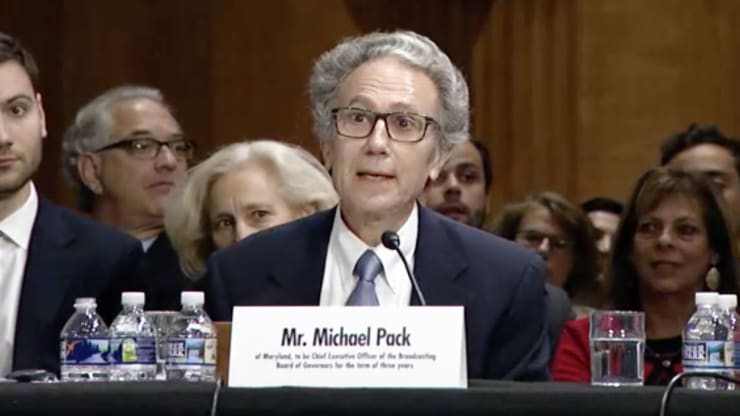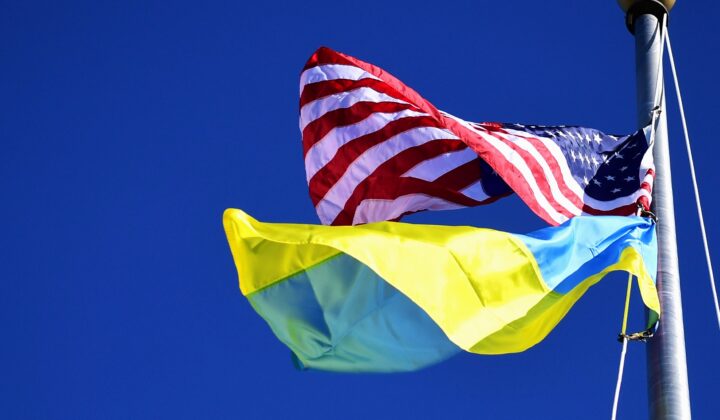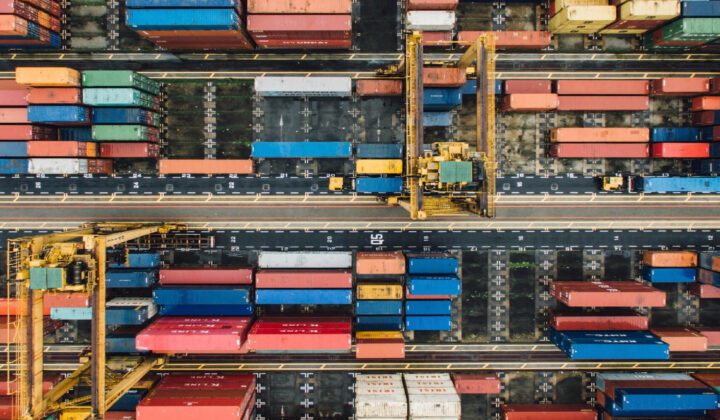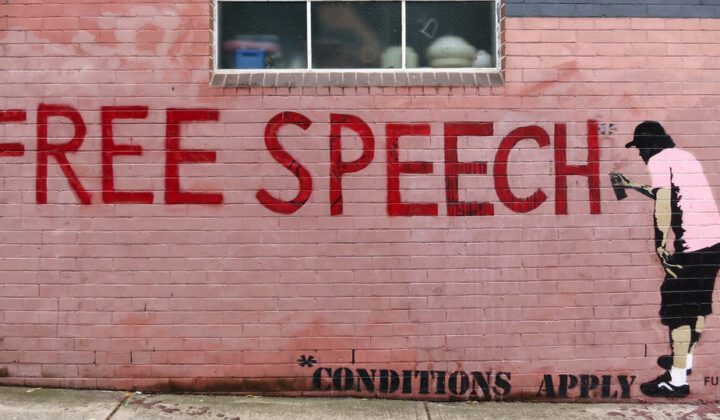President Trump Seeks to Install Stephen Bannon Ally to Run Voice of America
Following increasing pressure from President Trump, the Senate Foreign Relations Committee has scheduled a meeting to advance the long-pending nomination of Michael Pack to head the U.S. Agency for Global Media. The USAGM oversees Voice of America (VOA), the American government’s flagship effort to broadcast the values of liberal democracy abroad.
Michael Pack has been an open supporter of Steve Bannon, a former advisor of President Trump’s who is notorious for his conspiratorial worldview and past leadership of Breitbart News. Bannon has also been very critical of VOA, describing its current Pulitzer-winning head as “a classic ‘useful idiot.’” Pack served as the President of the Claremont Institute from 2015-2017 an organization that has undergone a troubling transformation in recent years. His nomination has been resisted by Democrats on the Foreign Relations Committee, as well as a number of Republicans and current VOA staff-members. Most worry that Pack’s associations mean he will not be committed to upholding the standard of independent and factual journalism legally required of VOA. Pack, however, has maintained his commitment to VOA’s journalistic integrity throughout his nomination.
- What do the USAGM and VOA do exactly?Since its inception during World War II, VOA has been a crucial source of journalism for citizens in unfree countries. The organization played an important role in US foreign policy efforts to combat Soviet propaganda during the Cold War. Since then, the organization has grown to reach a weekly audience of over 280 million people in over 40 languages worldwide. Other organizations that fall under the auspices of the USAGM include: Radio Free Europe – which focuses broadcasting on former Soviet bloc countries – Radio Free Asia – which broadcasts into countries like China, North Korea, and Cambodia – and Radio y Television Marti – which has been broadcasting news to Cuba since the onset of the Cold War.
- Why does Pack’s nomination present a problem for democracy?The type of pressure Trump has employed to push Pack’s nomination forward is troubling. He has gone as far as threatening to adjourn Congress in order to appoint Pack via “recess appointment,” a move legal experts have characterized as entering “a zone of absurdity.” And Trump’s intervention, coupled with official White House messaging claiming that VOA, as currently constituted, “too often speaks for America’s adversaries,” demonstrate his confidence in Pack to promote a version of the news he finds more favorable.Importantly, VOA is legally obligated by Public Laws 94-350 and 103-415 to present a comprehensive, reliable, and unbiased description of events as they transpire, and the 1994 U.S. International Broadcasting Act protects VOA and its journalists from political interference. Although Pack has expressed his commitment to the journalistic integrity of VOA, if he adheres to Steve Bannon’s worldview, rather than being committed to the ideals demanded by its charter to promote free press throughout the world, he would likely end up critiquing those very principles. Trump’s efforts to influence VOA through Pack might therefore result in a direct reversal of the organization’s original mandate, transforming it from a powerful voice in defense of free press around the world into an organization skeptical of a free press at home.

An Embezzlement Scandal Rocks Mississippi
About 94 million federal dollars from the Temporary Assistance for Needy Families program (TANF) granted to the State of Mississippi for welfare were misspent and even embezzled, according to the Mississippi Office of the State Auditor. The bulk of the money was directed to two well-connected non-profit groups, the Mississippi Community Education Center and the Family Resource Center of North Mississippi, where it was subsequently misused. One of the recipients of the misdirected funds was NFL legend Brett Favre, who received 1.1 million dollars from non-profit speeches he never gave, although he has pledged to return the money. And among those charged with embezzlement were John Davis, former director of the Mississippi Department of Human Services, and former pro-wrestler Brett DiBiase, whose religious non-profit received funds for charitable activities that they never carried out and which were used on personal expenses like Mr. DiBiase’s Malibu rehab for opioid addiction.
- How does this scandal fit into the broader context of Mississippi’s welfare policies? The misuse of federal funds in this case is particularly troubling because of the lengths that Mississippi goes to prevent supposed welfare fraud. In 2016, only 167 out 11,700 (roughly 1%) of applying Mississippi families received TANF funds through the state. And a 2017 law requires the state to hire private contractors to check the eligibility of Mississippians on food stamps and medicare and gives people as little as 10 days to respond when asked about their eligibility before they are kicked off the programs. In other words, the Mississippi government failed to live up to the same standards it set for those receiving aid. And instead of directing assistance to the needy, the state gave millions to questionable non-profits with vague self-help courses and fitness bootcamps while neglecting to improve people’s access to quality education and healthcare. As the state with the highest poverty rate in the country of 19.7%, 94 million dollars, if properly spent, would have made a meaningful difference in the lives of many struggling people in Mississippi.

New Prime Minister in Iraq Brings a Glimmer of Hope
Last week, Iraq appointed former intelligence chief Mustafa al-Kadhimi as Prime Minister, filling a position that had been empty for over five months after Adel Abdul-Mahdi resigned in November. Kadhimi is not a politician by trade, having worked in intelligence and journalism prior to this position. Kadhimi was exiled to London and worked as a journalist there during Saddam Hussein’s rule. After Saddam’s fall, he served as the Baghdad director of the Iraq Memory Foundation before becoming the country’s Director of National Intelligence in 2016.
Kadhimi’s selection as Prime Minister represents a positive shift from the country’s past leadership. Kadhimi is politically independent and is considered to be liberal and pragmatic. He is also secular, which marks a stark change from all other Iraqi Prime Ministers since 2005 who had been from the Shiite Dawa Party, with the exception of Kadhimi’s immediate predecessor Abdul-Mahdi. Importantly, he appears open to anti-government protestors and willing to compromise with them instead of imitating his predecessors’ use of excessive force. This attitude shows a degree of government accountability that Iraq desperately needs.
- What impediments remain to Iraq achieving a sustainable democracy?
Many. Prime Minister Kadhimi faces a tense and fragmented political system, ridden with deep divisions and competing parochial interests among Shia, Sunni, and Kurds, as well as Iran-backed militia groups. And his government will quickly need to deal with the country’s accelerating crises, including mass protests stemming from anger over the extent of corruption and sectarianism in Iraq’s government, and an impending economic catastrophe due to plunging oil prices. While Kadhimi’s appointment as Prime Minister has hopeful elements, meeting the demands of a divided Iraqi public will surely present an intense challenge. And government accountability is an essential element of democracy, but without a monopoly on the use of force in the country, militia groups will make this difficult for Kadhimi to implement. Furthermore, an important question looms: will Kadhimi be able to negotiate the unknowns in the international arena? Iraq is often caught in the middle of Iranian and U.S. conflict in the region, which undermines the Iraqi fight for reform and reconstruction. For the time being, however, Kadhimi has pulled off the impressive feat of receiving both American and Iranian acceptance of his prime ministership. - Why do both the United States and Iran, generally implacable foes, support Kadhimi as Prime Minister?There is speculation that this may be because both nations are distracted by COVID-19 and are either less interested or unable to micromanage Iraqi politics. Furthermore, since the liberation of Iraq from ISIS, popular Iraqi support for Iran has plummeted, giving Iran less soft power to work with to influence political outcomes. Nevertheless, as Iraq tries to diminish the influence of Iran-backed proxies in its territories in order to establish proper governance, Kadhimi will almost certainly have to manage growing tensions with his nation’s eastern neighbor.

Muslim American Communities Creatively Tackle Coronavirus During Ramadan
During the holy month of Ramadan, Muslims all over the world fast between dawn and sunset, gather for communal events, and give Zakat (annual charitable donations). Fundraising for Zakat often happens at the evening fast breaking meals called iftar. But the usual holiday practices are under pressure from the Coronavirus, which has made public gatherings dangerous. In the face of this challenge, Muslim American civil society has found creative ways to meet religious and communal obligations without exposing people to undue risk. The Islamic Society of North America, as well as local communal organizations, have established Coronavirus task forces to promote safe social distancing practices and find ways to provide food and raise money for the needy while doing so. For example, some communities are doing drive-through services, as well as drive-through iftar meals where fundraising can take place. Furthermore, religious bodies have ruled that Muslim families and businesses can apply for government loans even though they are not in line with traditional Islamic jurisprudence’s ban on charging interest.
- What role do civil society organizations play during a crisis?
The resourcefulness of American Muslim civil society in the face of Coronavirus is a reminder of the essential role civil society organizations play in meeting the needs of communities undergoing crises. Indeed, even the most well-run and honest government cannot effectively be everywhere at once, so it is important to see communities being diligent in caring for their own. Furthermore, democratic systems and healthy civil societies reinforce one another. Democracies provide the foundation for civil society organizations to grow and flourish freely, while these organizations, in turn, strengthen the civic bonds necessary to sustain democratic rule and accountability.





